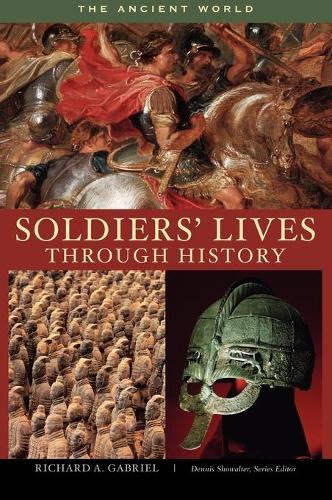
Soldiers' Lives through History - The Ancient World
(Hardback)
Publishing Details
Soldiers' Lives through History - The Ancient World
By (Author) Richard A. Gabriel
Bloomsbury Publishing PLC
Greenwood Press
30th November 2006
United States
Classifications
General
Non Fiction
355.009
Physical Properties
Hardback
328
Width 178mm, Height 254mm
851g
Description
Once warfare became established in ancient civilizations, it's hard to find any other social institution that developed as quickly. In less than a thousand years, humans brought forth the sword, sling, dagger, mace, bronze and copper weapons, and fortified towns. The next thousand years saw the emergence of iron weapons, the chariot, the standing professional army, military academies, general staffs, military training, permanent arms industries, written texts on tactics, military procurement, logistics systems, conscription, and military pay. By 2,000 B.C.E., war was an important institution in almost all major cultures of the world. This book shows readers how soldiers were recruited, outfitted, how they fought, and how they were cared for when injured or when they died. It covers soldiers in major civilizations from about 4000 B.C.E. to about 450 C.E. Topics are discussed cross-culturally, drawing examples from several of the cultures, armies, and time periods within each chapter in order to provide the reader with as comprehensive an understanding as possible and to avoid the usual Western-centric perspective too common in analyses of ancient warfare.
Reviews
Aimed at the general reader or college-level researcher, this is an excellent introduction to the topic.This work is recommended for academic and public libraries with military history collections. * American Reference Books Annual *
American military historian Gabriel covers a period from the beginning of the Bronze Age, about 4,000 BCE through the end of the Roman and Byzantine Empires. First he addresses such aspects of military life as the physical conditions of soldiers, equipment, discipline and punishment, tactics, death and wounding, and military medical care. Then he profiles 18 major armies of antiquity, including those of Sumer and Akkad, China, Persia, Imperial Greece, Carthage, and Imperial Rome. * Reference & Research Book News *
Author Bio
Richard A. Gabriel is a military historian and the author of numerous books. He was Professor of History and Politics at the U.S. Army War College and Professor of Humanities and Ethics at Daniel Webster College. Among his many books are Empires At War: A Chronological Encyclopedia (Greenwood, 2005), The Great Captains of Antiquity (2001) and From Sumer To Rome: The Military Capabilities of Ancient Armies (1991).
